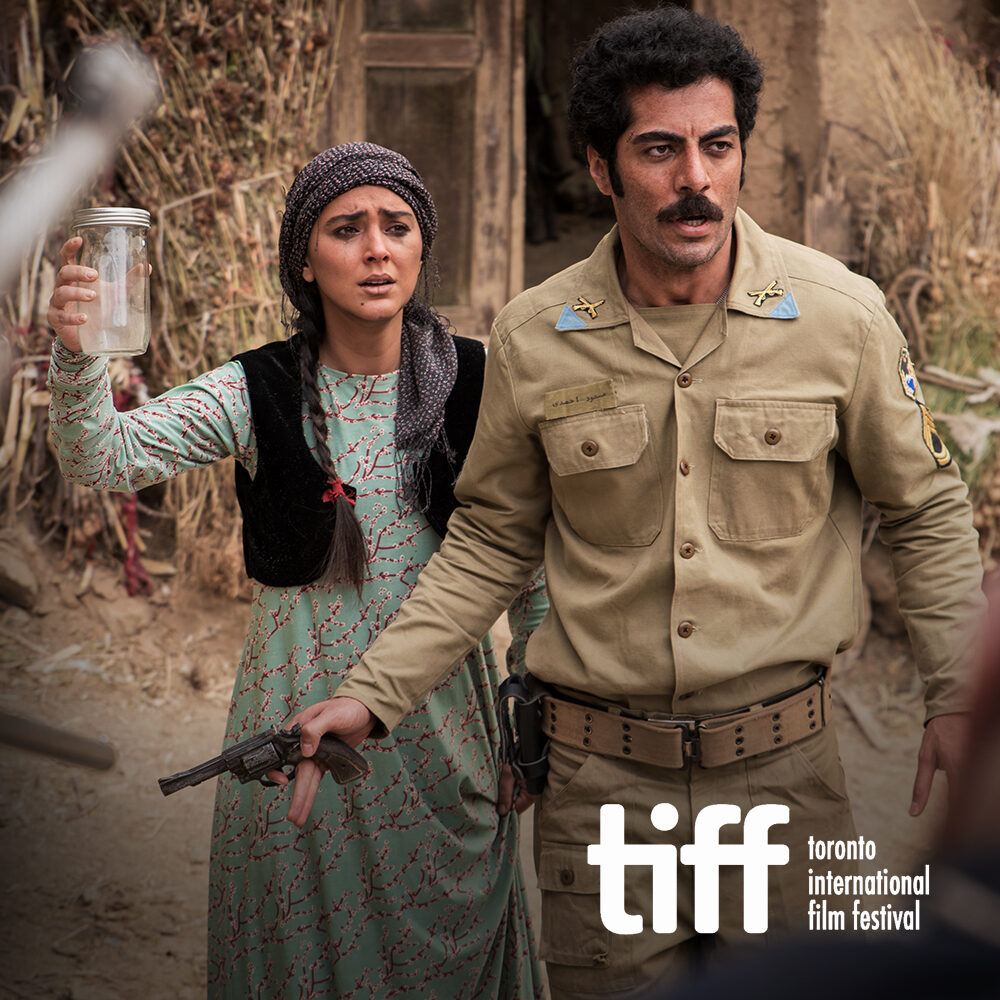NEWS

TIFF 2021 Review: ‘Zalava’ is a swell Iranian exorcism thriller
One of the best things about festivals is their ability to act as a point of legitimate cultural exchange, where viewers and audience members from all over the world can get a chance to step outside themselves and experience common stories as witnessed through different perspectives around the world. It’s even better — and often significantly more accessible/entertaining, especially for those who often blanch at reading subtitles — when it’s done through the prism of genre, and these wonderful films typically make up the backbone of TIFF’s Midnight Madness programming (not to mention the majority of the Fantastic Fest slate). Arslan Amiri’s Zalava, an Iranian horror film about the terror of the crowd and the conflict between the rational and the supernatural, is one such film: it’s a story that many of us are familiar with, but created and expressed in a way that makes it feel genuinely novel.
Set in 1978 (a pivotal year in Iranian history), Zalava documents a sergeant’s attempts to try and mollify a mountain village of Kurdish gypsies after they begin to suspect that demons are possessing members of their tribe. Sgt. Massoud (Navid Pourfaraj), who has a long and painful history with superstition, immediately believes that it’s all bullshit, and seizes the villagers’ guns, given that the way that one excises a demon when an exorcist isn’t around is to shoot the possessed in the leg. This proves problematic, as it leads to the accidental death of a young woman, and Massoud is forced into retirement. Before the guard can change, a man from the village reports that the demons have returned, and Massoud decides to head out to solve the problem once and for all. His replacement believes that he’s going to try and salvage his reputation or to muck things up badly enough that the area will go straight to shit when the new sergeant takes the reins.
It’s in his second visit to the village that Massoud meets Armadan (Pouria Rahimi Sam), an exorcist who claims that he can go in and trap demons in glass jars, which he will have to dispose of after he’s performed the rite, and who stands in defiance to the pure “reasoned” stance of the sergeant. After casting out the demon of the possessed’s body and into an empty-looking pickle jar, Massoud arrests Armadan, claiming that he’s a charlatan and a huckster looking to make a buck off of the superstitions of the villagers. The exorcist challenges him: open the jar. What’s the worst that could happen, if you really believe that this jar is empty? Massoud hauls him off, tosses him in the cell at the encampment, and spends the night pondering the empty jar, which sits on his desk, mocking him. Of course, he decides to open the jar, and it plunges him into a conflict that he’ll be lucky to escape from with his life.
There’s a heavy ambiguity as to the reality of the superstition in Zalava, as Amiri wisely doesn’t want to weigh down his metaphor with the inconvenience of an easy explanation, but he manages to milk the most out of his concept. We’re always primed for the things in that jar to go to hell, a sort of slight of hand attempting to redirect our attention away from the true monsters, who have abandoned Maple Street for the Mountains of Kurdistan. His camerawork is really well-done, with long, lovely tracking shots through the narrow streets of the village, following the Sergeant, in, perhaps, an echo of Paths of Glory, as he makes his way past the doors of the fearful, scythes hanging from them to ward off evil spirits. It’s heavy on atmosphere but isn’t lacking in wit, as the film’s finale is a well-constructed blend of anxiety and humor, as Massoud’s forced to reckon with the panic in a particularly traumatic way — a great payoff for his character, given his background.
